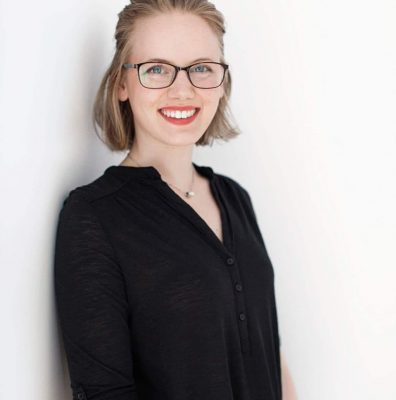
Meaghan Efford is a second-year PhD student with the Institute for the Oceans and Fisheries (IOF). Many students study zoology or ecology before coming to the IOF, but Meaghan’s background is in archaeology. She’s been able to put her unique skillset to use in her research with IOF professor Villy Christensen and his team as they work with the Tsleil-Waututh Nation to create a model of what the Burrard Inlet’s aquatic ecosystems would have looked like prior to contact with European settlers.
How did you come to the IOF?
I grew up learning stories about people who worked at the IOF from my grandfather, who worked in the old Department of Fisheries. I didn’t think I would apply for an ecology PhD. I was just curious. They had posted a position on Tsleil-Waututh website, and the IOF opportunity page, which got a lot of applications quickly. No one, including myself, expected an archaeologist to get into an ecology PhD program.
I emailed Villy and asked to talk about the position, saying that I would be visiting Vancouver and what days I would be able to visit UBC. He suggested I attend the Friday public seminar, and we could chat afterwards. This got my foot in the door, and I got to learn about the position, see what IOF was like from the inside, and hear from Villy’s students what it was like in the Global Oceans Modeling Lab.
What has been your biggest learning experience since joining the IOF?
Learning how to model was a big learning curve for me. I wasn’t used to memorizing mathematical formulas and it was a challenge for someone with no coding background. It’s a very different way of thinking, but I enjoyed it. Learning to work with Ecopath (ecosystem modelling software) was very challenging and slowed my work down a bit. But no one made me feel bad about it; it was just a challenge – and I had a lot of support from teaching assistants and mentors.
What has surprised you most about the IOF?
I was expecting to come in and be the odd one out, and feel really dumb, and not remember any of my biology from high school and early undergrad. But for me, the IOF has been incredibly supportive and encouraging. The people, the students themselves, have incredibly diverse backgrounds. Not everyone has the same master’s, or undergrad or life journey. The graduate students each bring their own background, skills, and interests, and this is what makes IOF special.
Related article: Mapping the evolution of coastal waters in Metro Vancouver: The Burrard Inlet
Tags: Aboriginal fisheries, Ecopath, Indigenous fisheries, IOF students, Tsleil-Waututh Nation, Vancouver, Villy Christensen